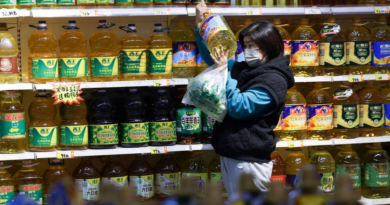One of U.S.’ largest labor unions says South Carolina’s workplace safety program is so bad the federal government should take over
One of the largest labor organizations in the United States petitioned the federal government on Thursday to wrest workplace safety oversight from South Carolina regulators accused of failing to protect service employees.
South Carolina is one of 22 states allowed to run its own ship when it comes to enforcing occupational safety in most private businesses — as long as the programs are “at least as effective” as their federal counterpart. Service Employees International Union argues that’s not the case in South Carolina, where its lawyer says a subpar enforcement program and “skeletal inspection force” are preventing real accountability.
Organizers also said in the Dec. 7 filing to the U.S. Labor Department that the state does not carry out enough inspections. South Carolina ran fewer inspections than expected by federal regulators in four of the five years from 2017-2022. The totals fitting for a state economy of its size fell 50% below federal expectations in 2018, according to the petition.
South Carolina conducted 287 inspections in 2022, or about 1.9 for every 1,000 establishments — a figure the organization said is less than one-third the rate in the surrounding states of North Carolina, Tennessee and Virginia, as well as the national average.
Furthermore, serious safety violations recently carried weaker sanctions in South Carolina than required, SEIU said. The state’s average state penalty of $2,019 for all private sector employers in fiscal year 2022 fell below the national average of $3,259, according to the union.
The Republican-led state is challenging recent federal penalty increases, though a federal court dismissed its case earlier this year.
The South Carolina Department of Labor, Licensing and Regulation did not immediately respond to a request for comment.
Thursday’s filing marked labor groups’ latest challenge to the South Carolina Occupational Safety and Health Administration. A civil rights complaint filed in April accused the agency of racial discrimination by failing to routinely inspect workplaces with disproportionately large numbers of Black employees.
The SEIU hopes that federal pressure will compel changes like those seen recently in Arizona. The southwestern state adopted new standards — including laws to ensure maximum and minimum penalties align with federal levels — after the U.S. Department of Labor announced its reconsideration of the Arizona State OSHA plan last year.
___
Pollard is a corps member for the Associated Press/Report for America Statehouse News Initiative. Report for America is a nonprofit national service program that places journalists in local newsrooms to report on undercovered issues.




